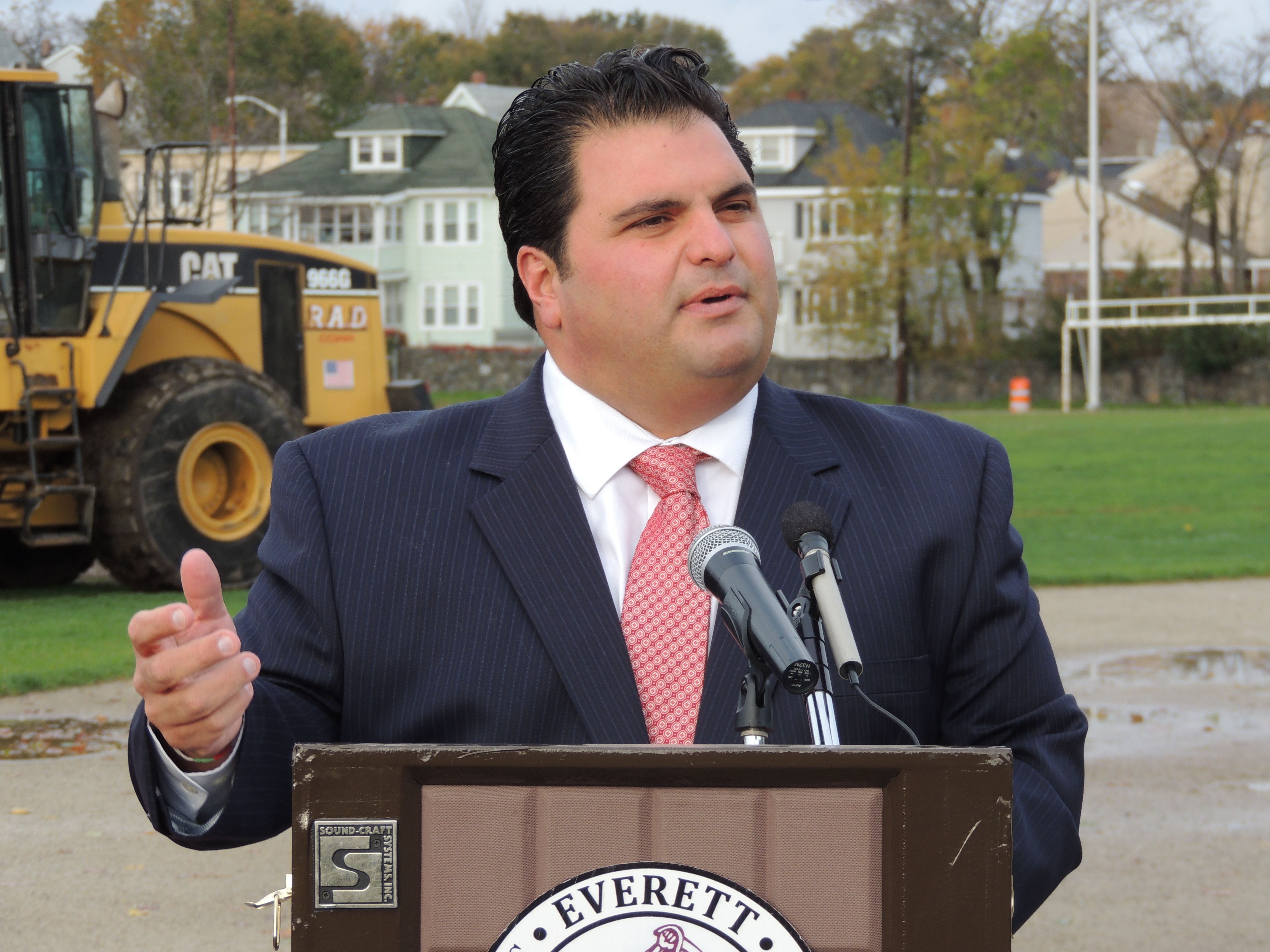Massachusetts Mayors Blast Anti-Casino Study as Bogus
Posted on: October 16, 2014, 05:00h.
Last updated on: October 16, 2014, 01:41h.

Some Massachusetts mayors and town executives in the state have blasted a casino study that claims new resorts would hurt lottery profits for cities and towns there. Anti-casino advocates are using the study to suggest that the economic benefits of adding casinos in Massachusetts have been overstated, and that voters should repeal the casino law in the upcoming November ballot referendum.
According to the study, which was released by Repeal the Casino Deal, local lottery profits could drop by as much as 22 percent if the new casinos are allowed to be built. Overall, the study estimates that as much as $103 million could be lost as consumers who used to play the lottery turn instead to casinos.
Mayors, Town Officials Reject Study
But a group led by Everett Mayor Carlo DeMaria, Springfield Mayor Domenic Sarno and Plainville Town Administrator Joseph Fernandes (all of whom lead towns and cities where casinos and slot parlors have been approved) is rejecting these figures, saying that other analysts have come up with entirely different results. According to the municipal leaders, any lottery losses would be short-term, and would be more than offset by the new revenues brought in by the casinos.
“These claims are totally inconsistent with the other studies about effects on local aid and with the experience of other states regarding lottery revenues,” the officials said in a statement released by the Committee to Protect Massachusetts Jobs.
To back up these statements, the group cited studies commissioned by the state of Massachusetts, as well as others from the Greater Boston Chamber of Commerce and the Center for Policy Analysis at UMass Dartmouth. Not only did those studies suggest that the large losses predicted by Repeal the Casino Deal were unrealistic, but they even offered some evidence that in the long run, lotteries weren’t harmed at all by the introduction of casinos.
“In fact, lottery revenues in Connecticut have doubled since the inception of casinos, and lotteries in Maine, Maryland, Ohio and Pennsylvania have all continued to grow, even as those states introduced gaming,” the statement read.
Repeal the Deal Fires Back
But the anti-casino group behind the study pointed out that they used the Massachusetts Gaming Commission’s own revenue estimates to come to their findings. Since nearly all state lottery revenue goes into local government coffers, they said, any drop would directly impact city and town budgets. That, they said, meant that the critiques of their study “strain credibility.”
So far, the state Gaming Commission has approved licenses for two casino projects: an MGM casino in Springfield, as well as a Wynn Resorts project in Everett. A slots parlor has also been approved for Plainville.
However, the future of those facilities is still up in the air. Anti-casino advocates have successfully placed a question on the November ballot asking voters if they would like to repeal the law that allowed for these casinos to be licensed; a “yes” vote would end plans to build the venues.
But anti-casino campaigners are facing an uphill fight. Not only are the casinos far better funded in their campaigns to beat back the repeal effort, but recent polling has shown that most voters plan to vote to keep the casinos.
No comments yet